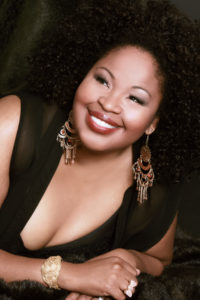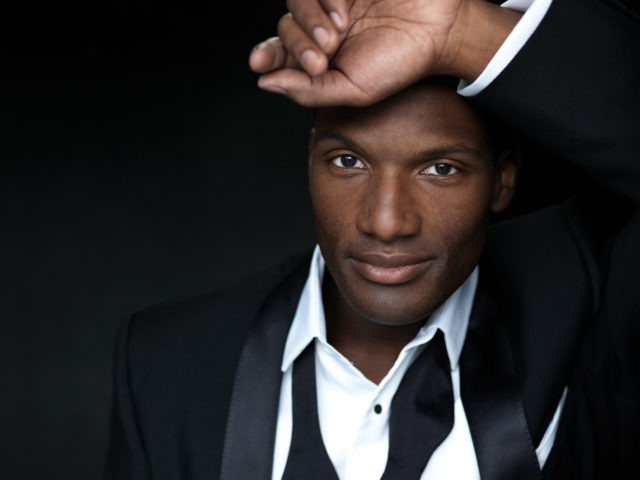By Keith A. Wolfe
Special to The Times
You can hear two emerging artists make their debut here in Birmingham in the two leading roles of Opera Birmingham’s upcoming Tosca, with soprano Karen Slack and tenor Noah Stewart bringing their soaring voices and dramatic presence to this tragic love story.
Tosca will be performed Friday, March 15 and Sunday March 17 at Samford University’s Wright Center.
Opera and classical music may not be the first thing that comes to mind when you think of progressive artists, but there are a number of singers who broke through the conservative mold and became some of the most celebrated singers in the world. These artists excelled not just in traditional roles on the stage, but also championed American music from spirituals to jazz for international audiences.
Early in the struggle of racial prejudice against black singers, contralto Marian Anderson turned her international fame into a spotlight on segregation on the classical music stage. The Daughters of the American Revolution refused to allow her to sing for an integrated audience in Constitution Hall in Washington, D.C., in 1939, leading to protests in the city. With the help of First Lady Eleanor Roosevelt, Anderson performed on the steps of the Lincoln Memorial to a crowd of over 75,000 people. She would later break the color barrier by being the first black singer to perform on the stage at the Metropolitan Opera in 1955.
Paul Robeson
Bass Paul Robeson used his success on both stage and film to support civil rights activism and social justice causes. His success in Show Boat, featuring his iconic performance of “Ol’ Man River,” opened the door to an international film and recording career, popularizing the spiritual as an art on the concert stage. Robeson’s fame allowed him to speak out on a wide range of social causes, including his involvement in anti-lynching legislation and anti-war efforts, causing him to be blacklisted and called before Congress during the McCarthy-era “Red Scare” hearings.
Leontyne Price
Soprano Leontyne Price reigned on international stages during a Golden Age of opera. From Laurel, MS, her early success as Bess in Gershwin’s Porgy and Bess opened the door for Price to sing opera’s romantic heroines from Aida to Tosca in the top opera houses around the world. Price was the first African American to perform a leading role in an opera on television with her appearance in Tosca, with several NBC affiliates in the South refusing to air the broadcast in protest. Her extraordinary career, featuring critically-acclaimed performances at the Metropolitan Opera, landed her on the cover of Time magazine. Price was a favorite of American composers, with many songs and concert works written specifically for her.
Kathleen Battle
Beginning in the 1970s and through the ’80s, two sopranos dominated opera on both the stage and in the recording studio. Soprano Kathleen Battle, known for her crystalline high notes and her fiery personality, performed virtuosic roles at the Metropolitan Opera, and won three Grammy awards for her recordings of some of opera’s most challenging shows. She was also a guest vocalist on Janet Jackson’s song, “This Time,” on Jackson’s 1993 album, Janet.
Jessye Norman
On the other end of the vocal spectrum, dramatic soprano Jessye Norman was the leading interpreter of romantic leading roles requiring powerful vocalism, with notable performances for the Queen of England and at the funeral for Jacqueline Kennedy. The two sopranos joined forces for a concert of spirituals at Carnegie Hall, showcasing both the humor and emotional depth of these uniquely American songs.
Today’s Talent

Today’s opera and concert stages feature an abundance of talented African-American artists, who excel not only in the classical world but embrace their musical roots from jazz to gospel. A partial list of these stars include the reigning “King of the High Cs” tenor Lawrence Brownlee, sopranos Angela Brown and Latonia Moore, and baritone Eric Owens. Bass Morris Robinson was featured in Sports Illustrated as an All-American college football offensive lineman before launching his career in opera and musicals. After winning the Metropolitan Opera National Council Auditions, soprano Alyson Cambridge has performed on stages as varied as the Lyric Opera of Chicago and the Soul Train Music Awards, plus has made appearances as a model and brand ambassador for fashion and jewelry designers.
Emerging Artists
African-American composers have been increasingly drawn to the dramatic world of opera, and stories of the black experience have inspired a number of powerful new works. Grammy-winning jazz artist Terence Blanchard premiered his opera Champion in 2013, about the life of boxer Emile Griffith. His second opera, Fire Shut Up in My Bones, based on the memoir by New York Times columnist Charles Blow, premieres this summer at Opera Theatre of Saint Louis.
Baseball legend Josh Gibson, often called the “Black Babe Ruth,” was the inspiration for 2017’s Summer King. Charlie Parker’s musical genius hid a troubled life, which is explored in Charlie Parker’s Yardbird. “We Shall Not Be Moved” tells the story of five teens from West Philadelphia through a combination of spoken word, R&B and classical music, plus choreography by celebrated dancer Bill T. Jones.
This overview barely scratches the surface of African-American artists who have shaped operatic storytelling, both on the stage as well as in the community. Explore powerful art from Scott Joplin’s ragtime infused Treemonisha to new Met star, soprano Angel Blue. You’ll find some inspiring artists and see this dramatic art form in a new light.
Order tickets to Tosca at Samford University’s Wright Center by visiting OperaBirmingham.org or calling 205-322-6737




